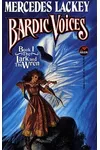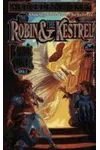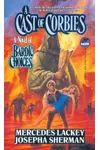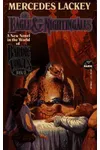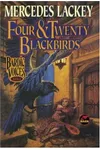Step into the enchanting world of Bardic Voices, where music weaves spells and bards defy oppression in a realm echoing Renaissance Europe! Mercedes Lackey’s beloved fantasy series blends magic, mystery, and melody, following the Free Bards—musicians who use their art to challenge corrupt powers and champion freedom. With vivid characters and intricate plots, Bardic Voices invites readers into a timeless adventure.
From the first strum of a fiddle to epic quests against sinister forces, Lackey’s storytelling captivates with its heart and depth. Whether you’re a fantasy fan or a music lover, this series offers a symphony of wonder that resonates long after the final page.
How Bardic Voices Began
Mercedes Lackey, a prolific fantasy author with over 140 novels, launched Bardic Voices in 1991 with The Lark and the Wren. Inspired by her passion for medieval folk music and the transformative power of art, Lackey crafted a world where music is magic—literally. Her experience as a lyricist for Firebird Arts & Music infused the series with authentic musical detail, creating a unique blend of historical fantasy and mysticism. The series grew from her fascination with bards as cultural heroes, evolving into a saga that celebrates creativity and resistance.
The Heart of Bardic Voices
The series spans five novels, each spotlighting different Free Bards in the land of Alanda. The Lark and the Wren introduces Rune, a spirited young fiddler who defies a sexist Bardic Guild to join the Free Bards, using her music to battle a malevolent ghost and later an Elven king. The Robin & the Kestrel follows Robin, a gypsy bard, and Kestrel, a fugitive prince, as they uncover a plot to ban music, aided by the ghostly ally from Rune’s tale. The Eagle & the Nightingales tracks Nightingale, a gypsy bard investigating a king’s inaction, weaving mystery with non-human allies like birdman T’fyrr. Four and Twenty Blackbirds dives into a darker murder mystery, with constable Tal Rufen chasing a magical killer targeting women.
Set in a richly detailed world reminiscent of early Renaissance Europe, Bardic Voices explores themes of social justice, artistic freedom, and the clash between individuality and institutional power. The Free Bards oppose the rigid Bardic Guild and a corrupt Church, modeled on the Reformation-era Catholic Church, using music to cast spells and inspire change. Lackey’s lyrical prose and deep musical knowledge—especially of Scottish and Irish fiddles—bring authenticity, while her focus on diverse characters, including non-humans and gypsies, adds depth. The series’ blend of magic, music, and mystery creates a distinctive tone that’s both adventurous and introspective.
Why Bardic Voices Resonates
Bardic Voices remains a gem in fantasy literature for its innovative fusion of music and magic, resonating with readers who cherish creative expression and underdog heroes. Fans praise its vivid world-building and relatable characters, with many revisiting the series for its comforting familiarity. Lackey’s exploration of prejudice, freedom, and the power of art feels timeless, even prophetic, with themes echoing modern struggles. The series’ niche status only adds to its allure, making it a cherished find for fantasy enthusiasts seeking something fresh yet classic.
- Publication Years: 1991–1997
- Number of Books: 5 (including A Cast of Corbies)
- Setting: Alanda, a fantasy world inspired by Renaissance Europe
Grab The Lark and the Wren and dive into Bardic Voices’ spellbinding blend of fantasy and melody!
